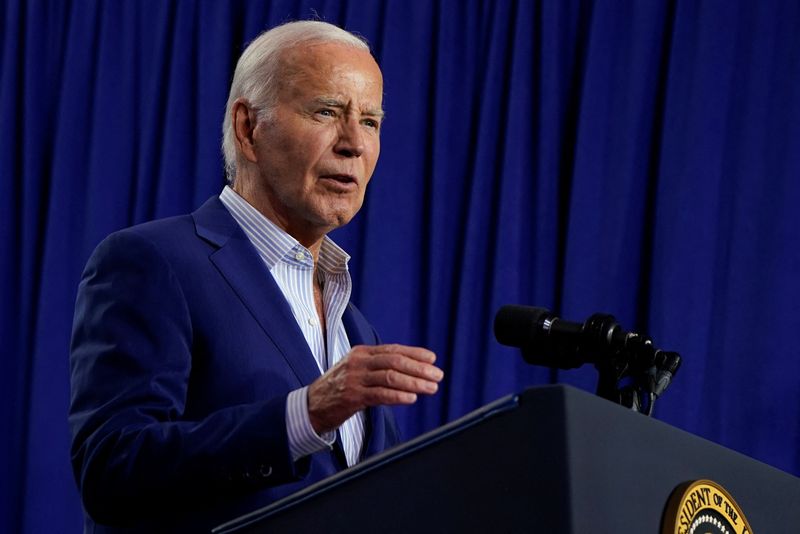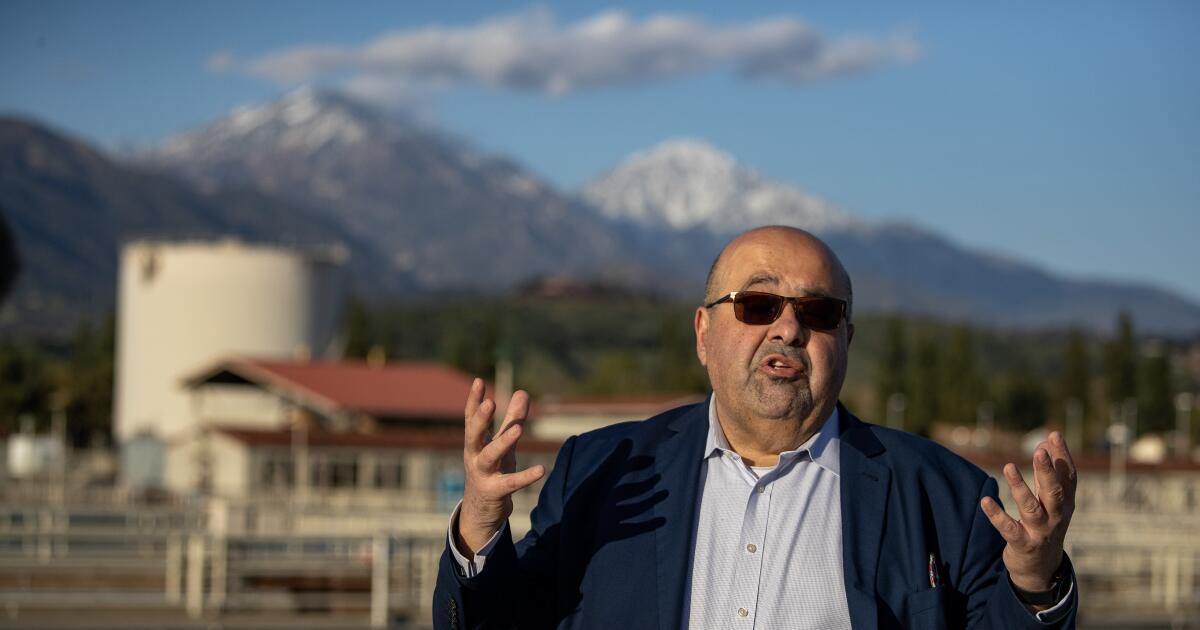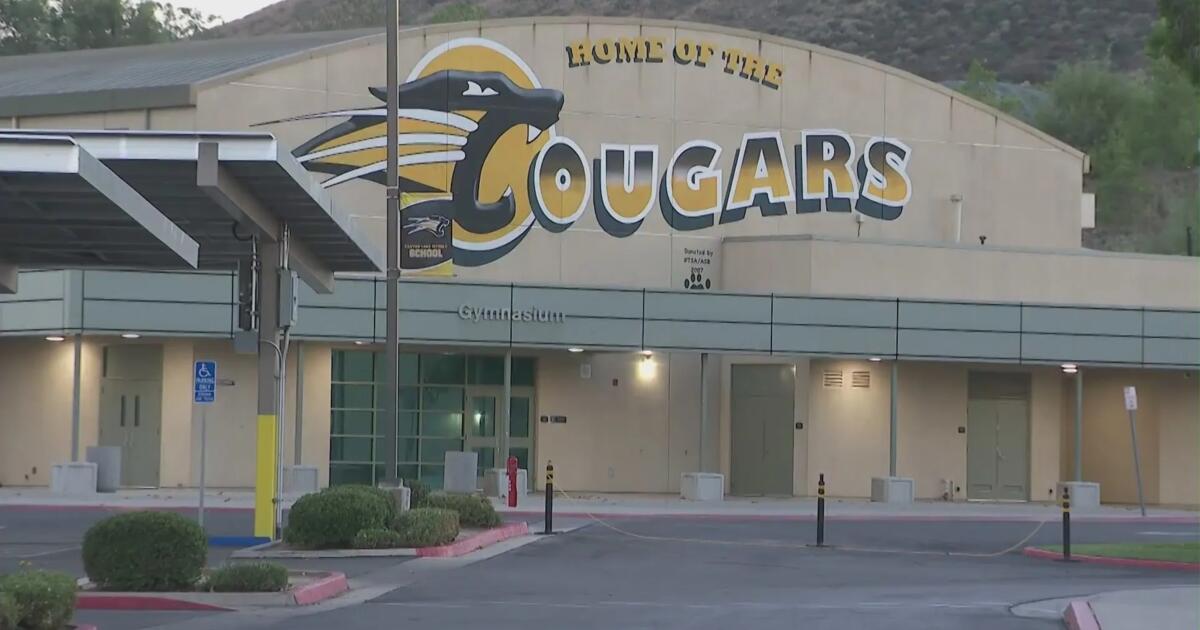Business
Hurricane season: First named tropical storm, Alberto, forms in Gulf of Mexico


Tropical Storm Alberto formed on Wednesday in the southwestern Gulf of Mexico, the first named storm of what is forecast to be a busy hurricane season.
Alberto, which is bringing strong winds, heavy rainfall and some flooding along the coasts of Texas and Mexico, is expected to make landfall in northern Mexico on Thursday.
“The heavy rainfall and the water, as usual, is the biggest story in tropical storms,” said Michael Brennan, director of the National Oceanic and Atmospheric Administration’s National Hurricane Center.
Alberto was located 185 miles (about 300 kilometers) east of Tampico, Mexico and 295 miles (about 480 kilometers) south-southeast of Brownsville, Texas. It had top sustained winds of 40 mph (65 kph), according to the National Hurricane Center in Miami. A tropical storm is defined by sustained winds of between 39 and 73 mph (62 and 117 kph), and above that the system becomes a hurricane.
Brennan said that winds could get up to 45 mph (72 kph) to 50 mph (80 kph) before the storm makes landfall.
As much as 5 inches (13 centimeters) to 10 inches (25 centimeters) of rain was expected in some areas along the Texas coast, with even higher isolated totals possible, Brennan said. He said some higher locations in Mexico could see as much as 20 inches (50 centimeters) of rain, which could result in mudslides and flash flooding, especially in the states of Tamaulipas, Coahuila and Nuevo Leon.
At the Hotel Miramar Inn in Tampico, Mexico, near where Alberto was expected to come ashore, front desk attendant Diana Flores said the wind was gusty, but still not strong, and the rain hadn’t started yet. “There are people in the restaurant and on the beach,” Flores said early Wednesday.
Outer bands of rain lashed parts of Tamaulipas state in the northeast corner of Mexico overnight.
The storm was moving west at 9 mph (15 kph). Tropical storm warnings were in effect from the Texas coast at San Luis Pass southward to the mouth of the Rio Grande and from the northeastern coast of Mexico south of the mouth of the Rio Grande to Tecolutla.
“Rapid weakening is expected once the center moves inland, and Alberto is likely to dissipate over Mexico” on Thursday, the center said.
The U.S. National Weather Service said the main hazard for southern coastal Texas is flooding from excess rain. On Wednesday, the NWS said, there is “a high probability” of flash flooding in southern coastal Texas. Tornadoes or waterspouts are possible.
NOAA predicts the hurricane season that began June 1 and runs through Nov. 30 is likely to be well above average, with between 17 and 25 named storms. The forecast calls for as many as 13 hurricanes and four major hurricanes.
An average Atlantic hurricane season produces 14 named storms, seven of them hurricanes and three major hurricanes.
Brennan said that the first named system in the Atlantic on average comes on June 20, so Alberto is “about right on schedule.”
A no-name storm earlier in June dumped more than 20 inches (50 centimeters) of rain on parts of South Florida, stranding numerous motorists on flooded streets and pushing water into some homes in low-lying areas.
Brennan said there will be dangerous rip currents from the storm and drivers should watch out for road closures and turn around if they see water covering roadways.
“People underestimate the power of water and they sometimes don’t always take rainfall and the threats that come with it seriously, especially if you are driving in an area and you see water covering the road, you don’t want to drive into it,” Brennan said. “You don’t know how deep the water is. The road may be washed out. it doesn’t take but just a few inches of water that are moving to move your car.”
Business
UK polls point to a big Labour win. The party fears voter complacency

Labour leader Keir Starmer poses for photos as he visits the Vale Inn on June 27, 2024 in Macclesfield, United Kingdom. In the final week of campaigning, Labour outlined its plans to expand opportunities for young people.
Cameron Smith | Getty Images News | Getty Images
LONDON — There’s been one main narrative since the U.K.’s Conservative Prime Minister Rishi Sunak called a general election back in May — that the opposing Labour Party would win the vote with a landslide.
While voter polls may have differed in scale and methodology, the results have pointed in one direction, showing that the center-left Labour Party has around a 20-point lead on the Conservatives. Labour is on track to win around 40% of the vote while roughly 20% of the support is projected to go to the Tories, according to a Sky News poll tracker.
Reform UK, led by arch-Brexiteer Nigel Farage, is seen with 16% of the vote, after eating away at Tory support, while the Liberal Democrats are seen gaining around 11% and the Greens with 6%. The Scottish National Party is predicted to win 2.9% of the vote.
Labour candidates and leader Keir Starmer have been keen to play down the level of support that the party enjoys, fearing voter complacency and the appearance of “having it in the bag” — a stance that could prompt voter apathy and a lower turnout of supporters at the polls, or a backlash from Conservative-inclined sections of the electorate.
“The Labour Party wants to be able to be convince voters that it’s absolutely central that they turn out and vote, because otherwise the Tories will win, and the Tories are desperate for people to think that they have still got a chance, and therefore it’s worth turning up,” Britain’s top polling expert John Curtice told CNBC.
Question marks have risen in the past over the accuracy of British voter polls, with previous projections over or underestimating support for various political parties. The errors have often come about because of inadequate sampling or of factors that are harder to control, such as voters being “shy” when polled on which party they intended to support.
Labour Party leader Sir Keir Starmer speaks ahead of the U.K.’s general election on July 4, 2024.
Anthony Devlin | Getty Images News | Getty Images
This year, however, experts tend to agree that the polls show such a swing to Labour that, even if the scale of support were wrong, the overall result would be the same: a convincing win for the opposition party.
“My attitude is [that] a poll should be taken but not inhaled,” Curtice said wryly. “The point is, you shouldn’t be looking at them to provide you with pinpoint accuracy, they should give you a reasonable indication of the direction of travel.”
“It just so happens that because this is an election in which apparently one party is so far ahead, much as [it was] in 1997, the polls could be quite a bit out — but nobody will notice,” he noted, referencing the year when the Labour Party won a landslide against the Conservatives, ending the latter party’s then 18-year rule.
Labour ‘spin’?
The Labour Party itself is understandably keen to downplay the polls, with a spokesperson telling CNBC that the party doesn’t comment on projections, “as they vary and fluctuate.”
“Instead, we’re working hard to take our message of change to voters ahead of the only poll that matters, on 4 July,” the spokesperson stated.
On Monday, Keir Starmer said no vote should be taken for granted, asking his supporters to continue campaigning until polls closed on Thursday.
“The fight for change is for you, but change will only happen if you vote for it. That is the message we have to take to every doorstep these last few hours and days until 10 o’clock on Thursday night.”
“Nothing must be taken for granted, every vote has to be earned. The polls don’t predict the future, we have to get out there,” he told campaign supporters in Hitchin.
Labour leader Sir Keir Starmer during a visit to Hitchin, Hertfordshire, while on the General Election campaign trail. Picture date: Monday July 1, 2024.
Stefan Rousseau – Pa Images | Pa Images | Getty Images
Labour’s former campaign and communications directors, Alastair Campbell, one of the chief strategists behind the rebranding of the party in the 1990s as ‘New Labour’ ahead of its monumental election win in 1997, told CNBC that he doubts current voter polls.
“I get really worried about about the way that these election debates are now unfolding, virtually everything in the debate at the moment is about these opinion polls,” he told CNBC two weeks ago.
“Apart from a few postal votes, nobody’s voted yet. And I just do not for one second believe that the Conservatives are going to get virtually wiped out, I just don’t believe it,” he said.
“I just think there’s something going very, very wrong with these polls, I could be completely wrong, and it’s true that Labour have been consistently ahead. But I just wish that, in our election periods, we would talk less about polls and more about what the parties are saying.”

Polling expert Matt Beech, director of the Centre for British Politics at the University of Hull, said Campbell’s position was designed to persuade Labour-inclined voters to cast their ballots.
“They want to make sure that they get as big a majority as possible. They’re all very much aware of [the lead-up to the election in] 1992 with the phenomenon of ‘shy Tories,’ when the polls said Labour would win and they didn’t …. [But] they’re not actually that genuinely worried about that. What they want to have a 1997-like landslide tsunami,” Beech told CNBC.
He added, “So if you keep banging on that drum [that the polls are not correct], you’re going to say to Labour-inclined voters, ‘please go out and vote.’ But it’s not that ‘we’re actually scared we’re not going to win, we are going to win comfortably. But we want a majority that enables us to push our agenda and we want this win to mean that we’re there for two terms.’“
Business
Ad-supported Murdoch Netflix rival to launch in the UK

Rupert Murdoch’s Fox Corporation is entering the UK’s highly competitive free, ad-supported video streaming market.
Tubi will compete with the likes of Netflix, Disney+, ITVX, Channel 4’s streaming platform as well as the BBC iPlayer.
The platform has been quickly gaining market share in the US where, according to Fox, it has almost 80 million monthly active users.
In the UK, Tubi says it will offer more than 20,000 films and TV series, including content from Disney, Lionsgate, NBCUniversal and Sony Pictures Entertainment.
The platform will also include a selection of British, Indian and Nigerian content.
UK viewers will be able to access content on the Tubi webpage and via a smartphone app.
Fox Corporation bought Tubi in 2020 for $440m (£348m) as the US media giant looked to attract younger audiences.
In recent years, streaming companies like Netflix, Amazon Prime Video and Disney+ have launched ad-supported services and raised subscription prices as they tried to boost revenues.
The moves came as they faced pressure to spend more money to grow their libraries of content as they try to attract more customers in an increasingly competitive market.
In March, Mr Murdoch’s TalkTV network announced that it would stop broadcasting as a terrestrial television channel and became a strictly online service.
The network launched in 2022 but struggled to attract viewers on its linear platform.
Mr Murdoch had hoped the network would shake up the broadcasting establishment by offering an opinion-led alternative to established outlets.
The media tycoon played a pivotal role in the development of the UK’s broadcasting industry by launching Sky in 1984.
Some commentators saw TalkTV as an attempt by Mr Murdoch to recreate his success with Sky.
Mr Murdoch’s 21st Century Fox sold its 39% stake in Sky to NBCUniversal’s owner Comcast in 2018 after losing a battle for control of the network.
Business
Biden knocks Supreme Court ruling on presidential immunity By Reuters

By Andrea Shalal
WASHINGTON (Reuters) -U.S. President Joe Biden on Monday criticized the Supreme Court ruling on presidential immunity that was seen as a win for his rival, former President Donald Trump, in forceful remarks from the White House.
The U.S. Supreme Court found on Monday that Trump cannot be prosecuted for any actions that were within his constitutional powers as president, but can be for private acts, in a landmark ruling recognizing for the first time any form of presidential immunity from prosecution.
“This nation was founded on the principle that there are no kings in America,” Biden said, adding that no one is above the law. With the Supreme Court decision, he said, “That fundamentally changed.”
Biden is running for re-election against Trump and has been sharply critical of his rival’s actions related to the Jan. 6, 2021, raid on the U.S. Capitol by Trump’s supporters, who believed Trump’s false claims that he had won the 2020 election.

Biden, 81, was making his first set of remarks at the White House since his shaky debate against Trump last week led to calls for him to step aside as the Democratic Party’s standard-bearer for the election.
After he stumbled over his words on the Atlanta debate stage, his remarks and comportment will be scrutinized for signs that he is up to the job of running for re-election and of governing the country for four more years.
-

 African History5 years ago
African History5 years agoA Closer Look: Afro-Mexicans 🇲🇽
-

 African History5 months ago
African History5 months agoBlack History Facts I had to Learn on My Own pt.6 📜
-

 African History5 years ago
African History5 years agoA Closer Look: Afro-Mexicans 🇲🇽
-

 African History1 year ago
African History1 year agoMajor African Tribes taken away during the Atlantic Slave Trade🌍 #slavetrade #africanamericanhistory
-

 African History1 year ago
African History1 year agoCameroon 🇨🇲 World Cup History (1962-2022) #football #realmadrid #shorts
-

 African History1 year ago
African History1 year agoPROOF AFRICAN AMERICANS AIN'T FROM AFRICA DOCUMENTED EVIDENCE
-

 African History5 months ago
African History5 months agoBlack History Inventors: Mary Kenner 🩸
-

 African History5 months ago
African History5 months agoMr Incredible Becoming Canny/Uncanny Mapping (You live in Paraguay 🇵🇾)
































